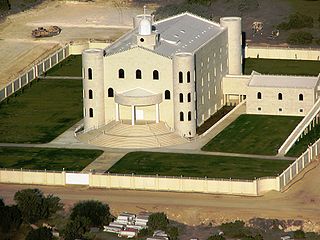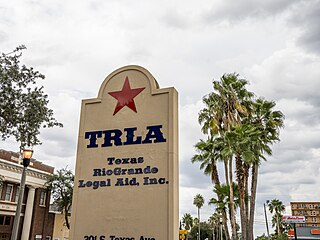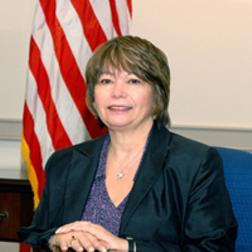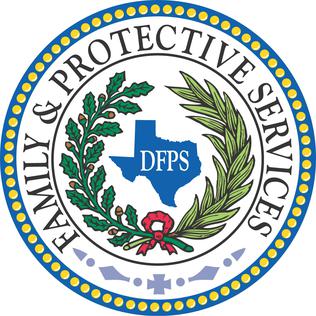History
It was created effective February 1, 2004 by House Bill 2292 of the 78th Texas Legislature (2003) as the first new agency in a major reorganization of Texas's health and human services system. [8] The change was made to help "consolidate organizational structures and functions, eliminate duplicative administrative systems, and streamline processes and procedures that guide the delivery of health and human services to Texans." [9]
Comptroller findings
DFPS has a documented history of issues with children placed in its care. A 2004 report by Texas Comptroller Carole Keeton Strayhorn was very critical of the Texas foster care system. [10] A follow-up statement with continued criticisms of the Texas foster care system was made in 2006 by the Comptroller and renewed a request to have the governor create a Family and Protective Services Crisis Management Team. [11]
The Comptroller stated that in fiscal 2003, 2004 and 2005, respectively 30, 38 and 48 foster children died in the state's care. The number of foster children in the state's care increased 24 percent to 32,474 in Fiscal 2005, while the number of deaths increased 60 percent. Compared to the general population, a child is four times more likely to die in the Texas foster care system. In 2004, about 100 children were treated for poisoning from medications; 63 were treated for rape that occurred while under state care including four-year-old twin boys, and 142 children gave birth. A 12-year-old boy died in December 2005, suffocated while being restrained from behind by an employee of the facility. Another died May 30, after drowning in a creek during a bicycle outing. A three-year-old was treated for poisoning from an atypical, mind-altering anti-psychotic drug.
The Comptroller's office also found significant financial problems in a 2005 audit of DFPS. [12]
YFZ Ranch FLDS raid
Gene Grounds of Victim Relief Ministries reported no hysteria or crying from children removed from the ranch. He commended CPS workers as exhibiting compassion, professionalism and caring concern. [13]
John Kight, chairman of an organization that provided mental health workers to assist FLDS children and mothers from the YFZ Ranch recounted to the Texas governor's office that DFPS' Child Protective Services had seemed out of control at the temporary shelters, describing "how abusive CPS was and how they've trampled all over their rights." [14] One of the workers who assisted at the shelter remarked that "wonderful loving women and children are being treated like convicts in a concentration camp by the state of Texas". [15] Another wrote "I have never seen women and children treated this poorly, not to mention their civil rights being disregarded in this manner" after assisting at the emergency shelter. "The CPS workers were openly rude to the mothers and children, yelled at them for tryin to wave to friends.. threatened them with arrest if they did not stop waving" [15] Workers took notes on everything the "guests" said. Some compared it to a prison or concentration camp. By contrast, one worker noted the children were "amazingly clean, happy, healthy, energetic, well behaved and self-confident," while the mothers were "consistently calm, patient and loving with their children."
Ultimately, both the Court of Appeals for the Third District and the Texas Supreme Court found that CPS improperly removed all the children and ordered them returned to their parents.
Caregivers who were previously forbidden to discuss conditions working with CPS later produced unsigned written reports expressed anger at the CPS traumatizing the children, and for disregarding rights of mothers who appeared to be parents of healthy, well-behaved children. CPS threatened some workers with arrest, and the entire mental health support was dismissed the second week due to being "too compassionate." Workers believed poor sanitary conditions at the shelter allowed respiratory infections and chicken pox to spread. [16]
After being removed from the temporary shelters the FLDS children were placed in 16 group shelters and foster homes. Minors with children were sent to the Seton Home in San Antonio, older boys to Cal Farley's Boys Ranch in Amarillo. Some parents stated on the Today Show that they were unable to visit their boys due to a shortage of CPS staff. Newspapers released names of facilities caring for the FLDS children that have requested donations of specific items, help or cash. [17]
2011 lawsuit
The DFPS has also been the subject of a recent lawsuit alleging, among other complaints, that foster children are inappropriately placed in restrictive institutional settings. [18] In 2011, Children's Rights, a New York-based national advocacy group working to reform child welfare systems, filed a federal class action lawsuit in the U.S. District Court for the Southern District of Texas alleging the DFPS routinely fails to either return children who've been in foster care at least a year safely to their families or to find them safe, appropriate, and permanent new families. [19] [20] They also claim that after approximately one year, or a maximum of 18 months, without successfully reunifying children with their birth families or finding them adoptive homes, children become permanent wards of the state, a status known as "permanent managing conservatorship" (PMC), and that after entering this permanent foster care status, many children have little hope for stable, permanent families and instead are shuffled between a variety of foster and institutional placements that are poorly supervised by the state. [19]

Eldorado is the only city in and the county seat of Schleicher County, Texas, United States. The population was 1,574 at the 2020 census. Eldorado is located on U.S. Highway 277, some 21 miles (34 km) north of Sonora and 43 miles (69 km) south of San Angelo, Texas.

The Fundamentalist Church of Jesus Christ of Latter-Day Saints is a religious sect of the fundamentalist Mormon denominations whose members practice polygamy. It is variously defined as a cult, a sect, or a new religious movement. The organization has been involved in various illegal activities, including child marriages, child abandonment, sexual assault, and human trafficking including child sexual abuse. The sect is not connected to The Church of Jesus Christ of Latter-day Saints, the largest Latter-day Saint denomination.

Carole Stewart Keeton, formerly known as Carole Keeton McClellan, Carole Keeton Rylander and Carole Keeton Strayhorn, is an American politician and the former Texas Comptroller of Public Accounts.
Kinship care is a term used in the United States and Great Britain for the raising of children by grandparents, other extended family members, and unrelated adults with whom they have a close family-like relationship such as godparents and close family friends because biological parents are unable to do so for whatever reason. Legal custody of a child may or may not be involved, and the child may be related by blood, marriage, or adoption. This arrangement is also known as "kincare" or "relative care." Kinship placement may reduce the number of home placements children experience; allow children to maintain connections to communities, schools, and family members; and increase the likelihood of eventual reunification with birth parents. It is less costly to taxpayers than formal foster care and keeps many children out of the foster care system. "Grandfamily" is a recently coined term in the United States that refers to families engaged in kinship care.

The Yearning for Zion Ranch, or the YFZ Ranch, was a 1,700-acre (690-hectare) Fundamentalist Church of Jesus Christ of Latter-Day Saints (FLDS) community of as many as 700 people, located near Eldorado in Schleicher County, Texas, United States. In April 2014, the State of Texas took physical and legal possession of the property.
Child protective services (CPS) is the name of an agency responsible for providing child protection, which includes responding to reports of child abuse or neglect. Some countries and US states use other names, often attempting to reflect more family-centered practices, such as department of children and family services (DCFS). CPS is also sometimes known by the name of department of social services, though these terms more often have a broader meaning.

Texas RioGrande Legal Aid, formerly Texas Rural Legal Aid (TRLA), is a nonprofit agency that specializes in providing free civil legal services to the poor in a 68-county service area. It also operates a migrant farmworker legal assistance program in six southern states and a public defender program in southern rural counties of Texas. Established in 1970, TRLA is the largest legal aid provider in Texas and the second largest in the United States.
Carolyn Jessop is an American author and former Fundamentalist Church of Jesus Christ of Latter Day Saints member who wrote Escape, an autobiographical account of her upbringing in the polygamist sect and later flight from that community. She is the cousin, by marriage, of Flora Jessop, another former FLDS member and advocate for abused children. Carolyn Jessop now lives in the Salt Lake City area with her children.

Children At Risk is a 501(c)(3) non-profit organization that drives changes for children through research, education, and influencing public policy. Founded in the year of 1989 in Houston, Texas and with an office opened in North Texas in 2011, the organization focuses on the well-being of children and educates legislators on the importance of solving children's issues while at the same time focusing on a variety of issues, and the primary issues are human trafficking, food insecurity, education, and parenting. Children At Risk also has a North Texas office in Dallas, Texas. Some of Children At Risk's previous primary issues were juvenile justice, mental health, and Latino children.

Gladys Carrión is an Adjunct Research Scholar with Columbia University's Justice Lab. She was the Commissioner of the New York City Administration for Children's Services (ACS) until 2017 and a nationally recognized advocate for improving child well-being.
The Ohio Department of Job and Family Services (ODJFS) is the administrative department of the Ohio state government responsible for supervising the state's public assistance, workforce development, unemployment compensation, child and adult protective services, adoption, child care, and child support programs. Prior to July 2013, ODJFS was also the state agency responsible for the administration of Ohio's Medicaid program. In July 2013, a new state agency was created, the Ohio Department of Medicaid (ODM), Ohio’s first Executive-level Medicaid agency. ODJFS employs about 2,300 full time employees and has an annual budget of $3.3 billion.

The Texas Health and Human Services Commission (HHSC) is an agency within the Texas Health and Human Services System. It was established by House Bill 2292 in 2003 during the 78th Legislature, which consolidated twelve different healthcare agencies into five entities under the oversight of HHSC.

DePelchin Children's Center, founded in 1892 in Houston, Texas, is a nonprofit organization focused on supporting and sustaining children and the families who care for them. DePelchin provides a range of services for children and families — it is an accredited foster care and adoption agency, and it also provides residential treatment for youth in foster care, as well as serving youth who are about to age out of foster care or have recently aged out of foster care. DePelchin’s services also include counseling, parenting classes, and other services focused on protecting children and keeping families strong. The center continues to be recognized at the state and federal level for cutting-edge programs, including a federal grant as a leading child trauma expert in Texas.

Foster care is the term used for a system in which a minor who has been made a ward or a non-minor, typically aged 18–21, who volunteers for placement, is placed in a relative placement, a non-related extended family (NREFM) placement, a community family home, an institution, or a group home. Relative, NREFM, and community caregivers certified by the state are typically referred to as "foster parents," "kin caregivers," "resource parents," or other local terms. The placement of the child is usually arranged through state or county social services. The institution, group home, or caregiver is reimbursed for the expenses related to caring for the child. The state via the family court and child protection agency stand in loco parentis to the minor, making all legal decisions, while the caregiver is responsible for the day-to-day care of the minor. Even while their child is in Care, typically birth parents retain Education and Medical rights and the right to contact with their child unless parental rights are terminated by the Court.

The Wisconsin Department of Children and Families (DCF) is an agency of the Wisconsin state government responsible for providing services to assist children and families and to oversee county offices handling those services. This includes child protective services, adoption and foster care services, and juvenile justice services. It also manages the licensing and regulation of facilities involved in the foster care and day care systems, performs background investigations of child care providers, and investigates incidents of potential child abuse or neglect. It administers the Wisconsin Works (W-2) program, the child care subsidy program, child support enforcement and paternity establishment services, and programs related to the federal Temporary Assistance to Needy Families (TANF) income support program.
Seth Jeffs is an American high-ranking official in the Fundamentalist Church of Jesus Christ of Latter-Day Saints. He is known for harboring his brother Warren Jeffs during the federal manhunt to arrest him.

The New York City Administration for Children's Services (ACS) is a New York City government agency that prosecutes parents, caregivers, and juveniles in child protective service and delinquency proceedings in New York City. ACS has been the subject of numerous civil rights lawsuits involving the wrongful removals and deaths of children as well as constitutional violations of both parents and children.
Logan Lynn Marr was an American girl who died while in foster care.
BCFS Health and Human Services is a U.S. 501(c)(3) organization based in San Antonio, Texas, specializing in emergency shelter, foster care, and adoption. It was founded as an orphanage for Hispanic children in 1944.
The Refuge Ranch was a Christian faith-based facility on 50 rural acres in Bastrop County, Texas, for young women who had been subjected to human trafficking, which operated under contract with the Texas Department of Family and Protective Services (DFPS) until it was ordered to shut down on March 11, 2022, in the wake of multiple reports of sexual abuse and exploitation, medical neglect and physical abuse. Purportedly the largest long-term, live-in rehabilitation facility for child survivors of sex trafficking in the United States, it included a charter school operating under an arrangement with the University of Texas-University Charter School. At the time of its creation, founder Brooke Crowder explained, "We're not bearing the cost of our on-site charter school—the University of Texas is doing that. We're not bearing the cost of the medical care. We're partnering with a federally qualified health care clinic." Each survivor at the Refuge would receive a customized care plan "provided by a staff that's committed to Christ".












